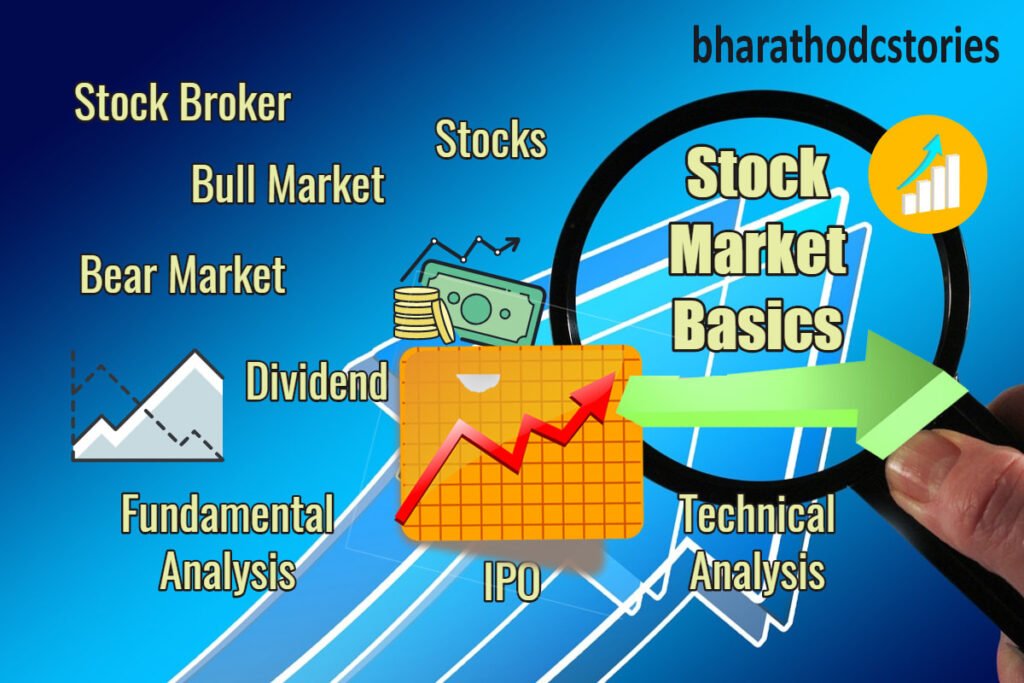Share Market SecretsThe share market, also known as the stock market, is one of the most talked-about financial topics today. For some, it’s a goldmine that can turn them into millionaires, while for others, it’s a risky gamble that leads to heavy losses.

If you have ever thought about investing or trading in the share market, you need to know both the advantages and the disadvantages. In this blog post, we will explore the benefits and risks of the share market in detail so that you can make an informed decision before putting your hard-earned money at stake.
What is the Share Market?

The share market is a platform where companies list their shares to raise capital, and investors buy or sell these shares to earn profits. In simple terms, when you buy a share, you are buying a small ownership stake in that company.
If the company performs well, the value of your share increases, and you can sell it for a profit. If the company performs poorly, your share value decreases, leading to a loss.
The share market has two main segments:
- Primary Market – Companies issue shares to the public for the first time through an Initial Public Offering (IPO).
- Secondary Market – Shares are traded between investors after the IPO in exchanges like NSE (National Stock Exchange) or BSE (Bombay Stock Exchange) in India.
Investing in the share market can be done in two main ways:
- Long-term Investment: Holding shares for months or years to gain from the company’s growth.
- Trading: Buying and selling shares quickly (even within the same day) to earn short-term profits.

Benefits of Investing in the Share Market
Investing in the share market has several advantages if done smartly. Let’s take a closer look:
- High Returns Potential
The biggest reason people are attracted to the stock market is the potential for high returns. Unlike fixed deposits or savings accounts, where the interest rates are low,
the share market can multiply your wealth if you invest in fundamentally strong companies. For example, investors who bought shares of Infosys or Reliance decades ago have seen their investment grow multiple times.
- Ownership in Big Companies
By purchasing shares, you become a part-owner of the company. This gives you the right to participate in the company’s profits through dividends and also attend shareholder meetings.
- Liquidity

Shares can be easily bought and sold during market hours. This liquidity gives you the flexibility to convert your investment into cash quickly whenever you need it.
- Dividend Income
Apart from the rise in share price, some companies also pay dividends to their shareholders. This is a form of passive income that can add to your wealth over time.
- Beating Inflation
Historically, stock market investments have outperformed inflation in the long run. While inflation reduces the purchasing power of money, investing in growth-oriented companies can help your wealth grow faster than inflation.
- Diversification Opportunities
The share market allows you to diversify your investment across different sectors like technology, healthcare, banking, and more. This reduces the overall risk, as all sectors do not perform the same at the same time.
- Market Volatility
Stock prices fluctuate daily due to news, global events, economic policies, and company performance. Sudden market crashes can lead to heavy losses for investors who are not prepared.
- Risk of Loss
Unlike a bank deposit, where your principal amount is safe, the share market carries the risk of losing your entire investment if the company performs poorly or goes bankrupt.
- Requires Knowledge and Research
Investing blindly based on tips or rumors can be dangerous. Successful investing requires studying financial statements, market trends, and understanding the company’s business model.

- Emotional Stress
The share market is not for the faint-hearted. Price fluctuations can cause panic, leading investors to make wrong decisions like selling during a dip or buying during a peak.
- Possibility of Fraud and Manipulation
Although stock markets are regulated, there are still instances of fraud, insider trading, and price manipulation that can affect investors.
- Time-Consuming for Traders
Active trading requires constant monitoring of the market. It can be stressful and time-consuming, making it unsuitable for everyone.
Tips to Minimize Risks in the Share Market
If you want to enjoy the benefits of the share market while minimizing risks, here are some practical tips:
Invest for the Long Term: Long-term investors generally face fewer risks than short-term traders.
Diversify Your Portfolio: Don’t put all your money in one stock. Spread it across sectors.
Do Proper Research: Understand the company, its financials, and industry trends before investing.

Avoid Emotional Decisions: Stick to a strategy and avoid panic selling during market dips.
Use Stop-Loss Orders: For traders, setting a stop-loss can limit potential losses.
Start Small: Begin with a small investment and increase gradually as you gain experience.
Final Thoughts
The share market is a powerful tool for wealth creation, but it is not without risks. While it offers high returns, the chances of losses are equally high if you invest without knowledge and discipline. A successful investor treats the stock market as a long-term game and avoids emotional decisions.
If you want to enter the share market, start by learning the basics, observing market trends, and investing small amounts initially. Over time, with proper research and patience, the share market can help you achieve financial freedom.

TG77casino, that’s where I spent most last Friday! Good selection of games, slots were treating me well (sometimes, haha). Always a decent choice for a little action. See for yourself: tg77casino
Alright, 777tezgame. It’s a game alright. Play it, don’t play it, your call. Just thought you should know it exists! 777tezgame
Just stumbled upon 5588. It looks really organized site with the features that one could want. If curious check it out for yourself: 5588. Have fun!
Anyone using pesobets3? Thinking about signing up. Wondering if the payouts are reliable. Let me know your thoughts pesobets3.
On the go? MV9Bet’ll probably work on mobile. Time to check it out. mv9bet
ph2 https://www.proph2.org
kinggamebio – Kinggamebio: Top Philippines Slot Online & Casino Games. Experience easy Kinggamebio login, register today, and enjoy our official app download for the best gaming experience.Experience the premier Philippines slot online and casino games at Kinggamebio. Enjoy easy Kinggamebio login, fast register, and our official app download for the ultimate gaming experience. Join today! visit: kinggamebio